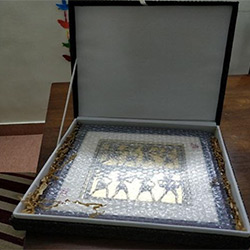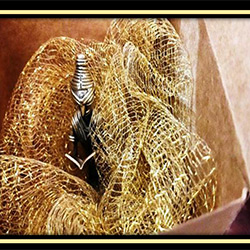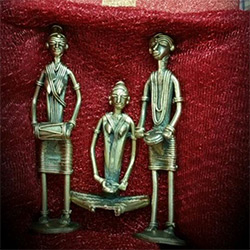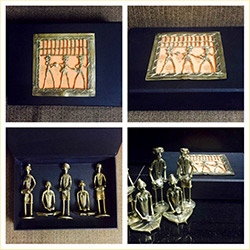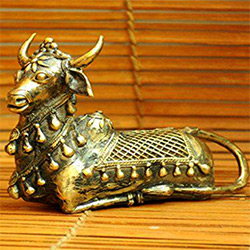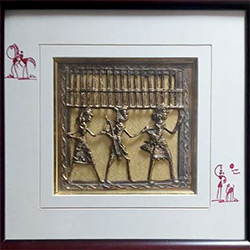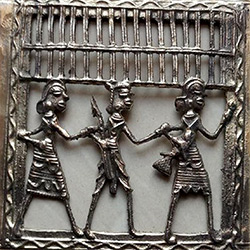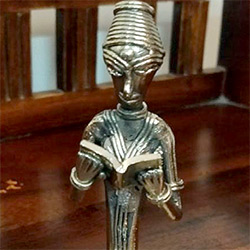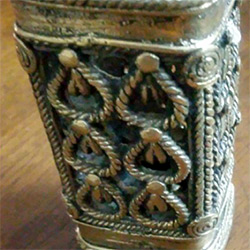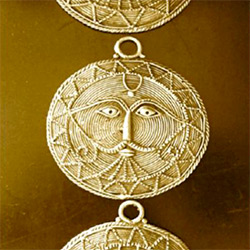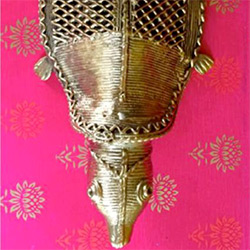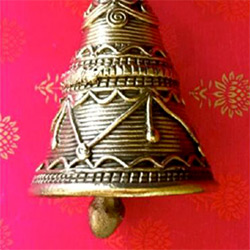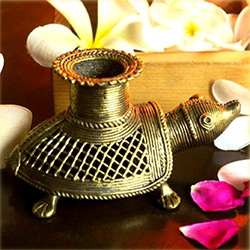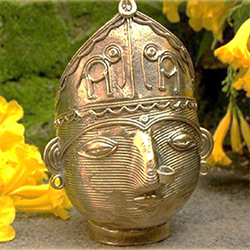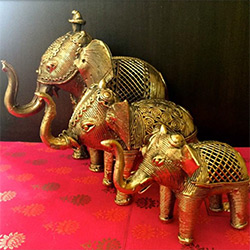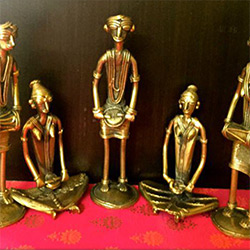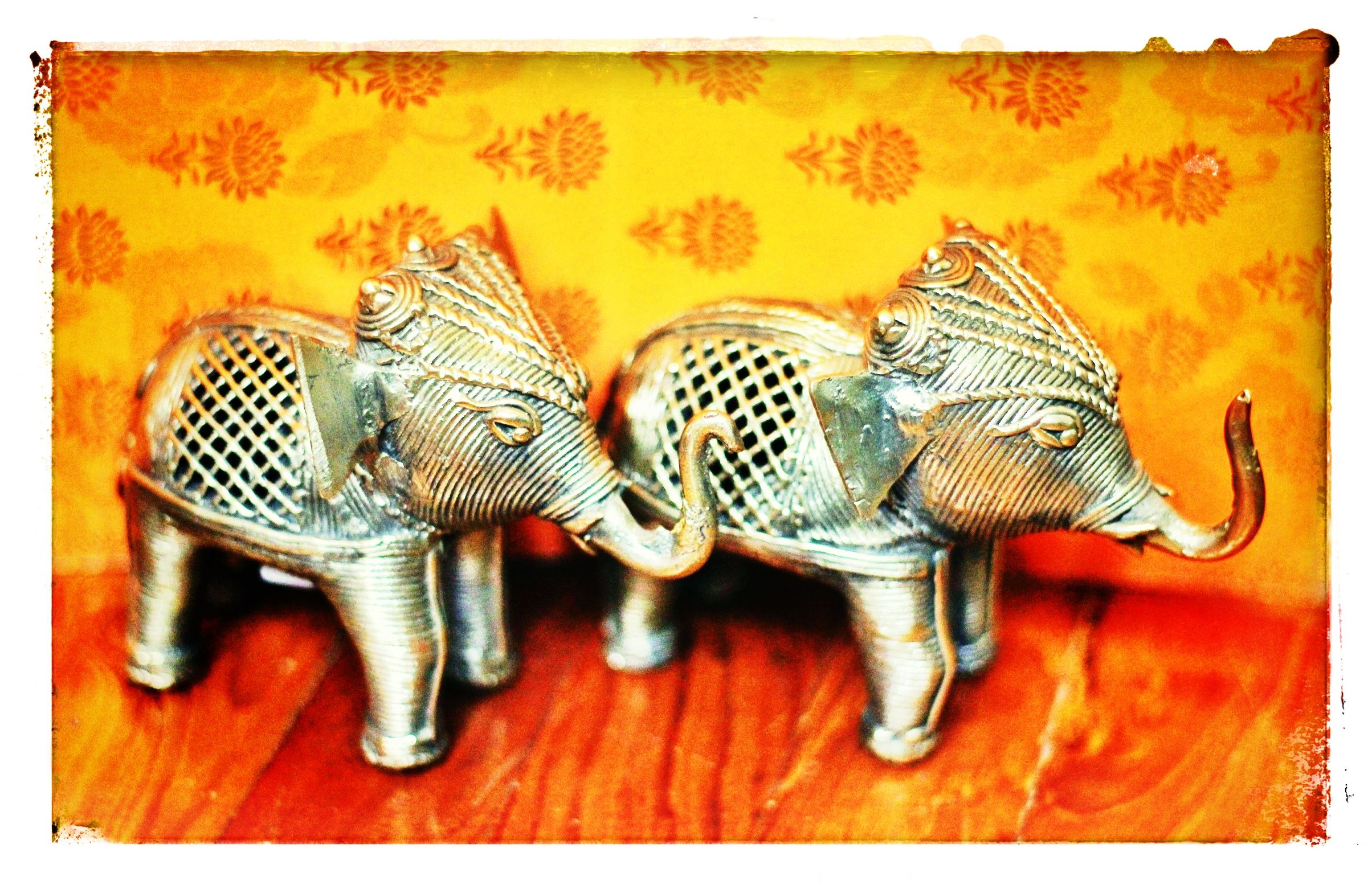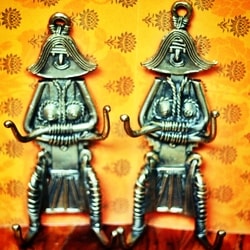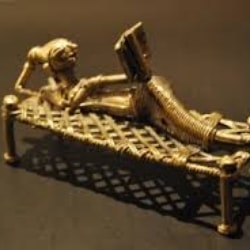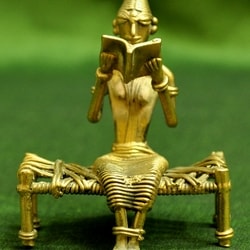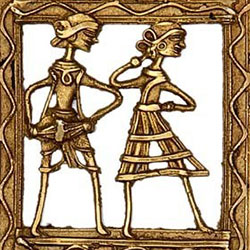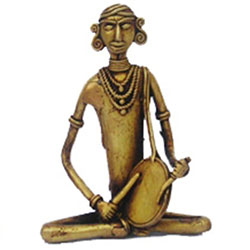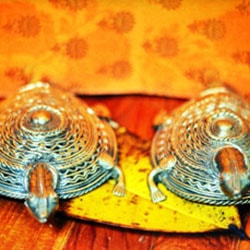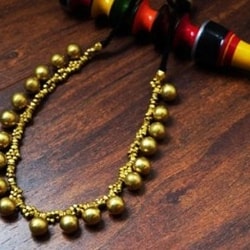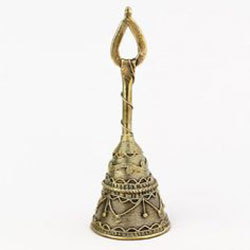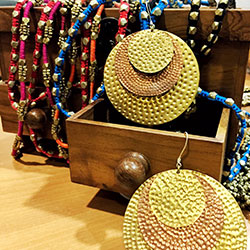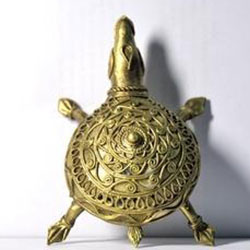
Dokra is a system of metal casting which has been used in India for over 4,000 years. This craft dates back to the pre-historic era of Harrappa and Mohenjodaro period of the Indus Civilization. The roots of its name come from the Dokra tribes, the metalworkers of the areas of Bastar and Chhattisgarh in India. The distant cousins of this tribe also extend from the states of Jharkhand to West Bengal and Orissa, in India. The process of making Dokra is fascinating and uses only natural raw materials. The method incorporates casting copper-based alloys through solid casting and hollow casting. Dokra is completely handcrafted and therefore, the shapes are not perfect, and the symmetries are not mirror images produced like in a machine made products. The beauty of Dokra lies in its asymmetry.
Dokra art has a rustic and antique finish, which makes this unique and appealing. Earlier craftsmen used to create only traditional ritualistic items and decorative pieces but now with new designs inputs, there has been a lot of product diversification, resulting in numerous innovative utility items like door handles, lamp shades, hangers, boxes and caskets of different shapes and sizes.

